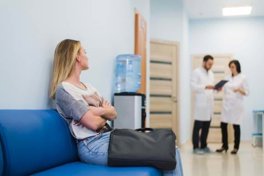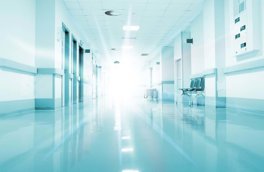
Can I Claim if My Child is Affected by Medical Negligence?
If a healthcare professional causes harm to your child through a medical injury or by administering inappropriate treatment, you could make a medical negligence claim on their behalf.
COVID-19 might be top of the news right now, but the advice from the NHS is not to ignore other health problems and new symptoms.
As Medical Negligence Solicitors, we know first-hand the importance of an early diagnosis, so would strongly urge you to use the NHS services that are available as and when you need them. You can still get help from your GP if you need it, and they could help diagnose a condition that could be easily treated if found early.
Often, a telephone call to your GP practice can allow an assessment to be made about whether you should attend in person or go to another treatment centre about your symptoms.
You may also be given advice about whether there are special measures in place for appointments in light of COVID-19.



Early diagnosis and treatment of conditions can make all the difference in recovery. Where symptoms could be signs of cancer, for example, these should be discussed with your GP, who can decide whether further investigations are needed.
An early diagnosis often means that tumours can be removed with surgery and that other treatment, such as chemotherapy and radiotherapy, may be more effective or perhaps not necessary at all. Your GP is best placed to decide whether you need to be referred.
Similarly, an early prescription of antibiotics can prevent an infection from becoming more serious, while prompt treatment for a fracture can mean that the bone is set in the right position to heal well.
So contact your GP and discuss any symptoms with them, and they can decide whether you need to physically attend an appointment, and advise you on how to do so safely.
If you contact your GP, you’re also likely to be told about any routine appointments that can now take place as restrictions ease.
It might be easy to disregard appointments such as routine cervical smear tests or mammograms. But again, you should follow the advice given to you by the NHS about whether you should attend these appointments or not.
Regular smear test appointments are a good example of why it’s so important for us to take responsibility for our own health, as they can prevent up to three-quarters of instances of cervical cancer.
If you’re worried that even after getting medical advice, your condition wasn’t diagnosed as early as it could have been, you are entitled to independent legal advice about making a claim.
We understand that the NHS is a treasured national institution, and our appreciation for it has perhaps never been greater than it has been throughout the Coronavirus pandemic.
The NHS’s recent 72nd anniversary was a great opportunity to pause and reflect on the heroic and remarkable efforts of NHS staff, so we understand you may be worried about making a claim at this time. However, the NHS is insured so that people can be compensated if they’re impacted by medical mistakes, as it recognises they can and do happen.
Our expert Medical Negligence Solicitors offer a free claims assessment and legal advice, so we can look at your situation and discuss it with you.
We’re happy to listen to any problems that you’ve had and guide you through the different options that are available to you.

If a healthcare professional causes harm to your child through a medical injury or by administering inappropriate treatment, you could make a medical negligence claim on their behalf.

If you suspect that your misdiagnosis could have been prevented, then you may have a claim for medical negligence compensation.

No. When choosing a Medical Negligence Solicitor to help you claim compensation, you don’t need to use a firm that’s local to you.
Fill in the form below to get in touch with one of our dedicated team members, or call our team today on: 0808 239 6043